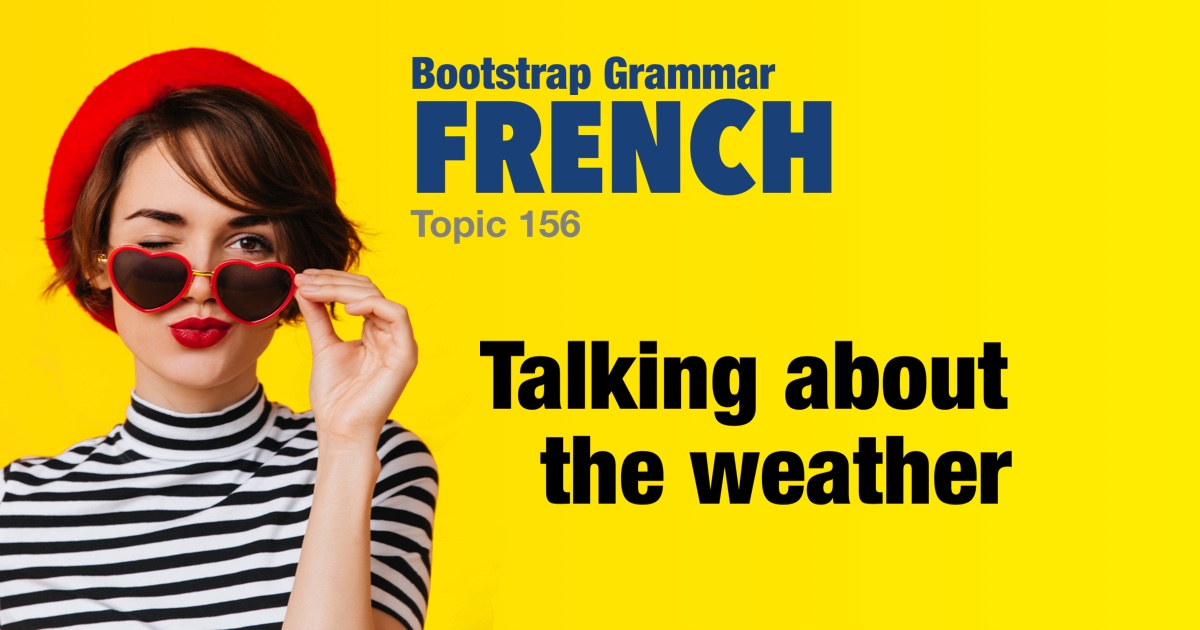French grammar - Talking about the weather |
|||
|
|||
The impersonal il fait ('it makes') is used with an adjective to talk about the weather. -- C'est followed by an adjective can similarly be used. The verbs pleuvoir ('to rain') and neiger ('to snow') also take the impersonal il to describe the weather. |
| Examples: | |
|
Quel temps fait-il ?
How is the weather? |
|
|
Quel temps faisait-il ?
How was the weather? |
|
|
Quel temps fera-t-il ?
How will the weather be? |
|
|
Il fait beau.
The weather's nice. |
|
|
Il faisait bon avant-hier.
The weather was good the day before yesterday. |
|
|
Il fera mauvais après-demain.
The weather will be bad the day after tomorrow. |
|
|
Il fait encore frais ici au printemps.
It is still cool here in the spring. |
|
|
Il fait très froid.
It is very cold. |
|
|
Il fera assez chaud pendant l'été.
It will be quite warm during the summer. |
|
|
Il fait soleil en juillet.
It is sunny in July. |
|
|
Il fait du vent au bord de la mer en automne.
It is windy by the sea in autumn. |
|
|
Il faisait du brouillard à Londres.
It was foggy in London. |
|
|
Il fait rarement orageux en hiver.
It is stormy. |
|
|
C'est humide.
It is humid. |
|
|
C'est gelé.
It (the weather) is freezing. |
|
|
Il pleut.
It is raining. |
|
|
Il a plu toute la journée d'hier.
It rained all day yesterday. |
|
|
Il pleuvait pendant le match de football.
It was raining during the football match. |
|
|
Il y avait un petit peu de pluie pendant le pique-nique.
There was a little bit of rain during the picnic. |
|
|
Il neige.
It is snowing. |
|
|
Il neigeait fort dans les montagnes.
It was snowing hard in the mountains. |
|
 |
|


